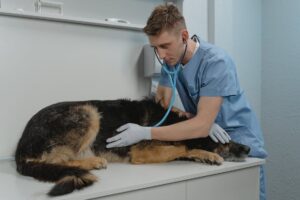As pet owners, one of the questions we often ask ourselves is “can dogs eat nuts”?
While dogs are omnivores and can digest a wide variety of foods, certain foods can be toxic and cause serious health problems.
10 foods that are safe for dogs to eat
- Chicken: A lean protein source that is easy for dogs to digest.
- Fish: Fish such as salmon and tuna are high in omega-3 fatty acids and can promote a healthy coat and skin.
- Carrots: A healthy, low-calorie treat that is high in vitamins A and C.
- Peanut butter: A good source of protein and healthy fats, as long as it is unsweetened and does not contain xylitol.
- Oatmeal: A good source of fiber and can help regulate blood sugar levels.
- Brown rice: A good source of carbohydrates and can aid in digestion.
- Apples: A healthy treat that is high in vitamins A and C.
- Green beans: A low-calorie treat that is high in fiber and vitamins K and C.
- Sweet potatoes: A good source of carbohydrates and are rich in vitamins A and C.
- Yogurt: A good source of protein and calcium, as long as it is low in fat and does not contain added sugars.
10 foods that are unsafe for dogs to eat
- Chocolate: Contains theobromine which can be toxic to dogs, even in small amounts.
- Grapes and raisins: Can cause kidney failure in dogs.
- Onions and garlic: Can damage a dog’s red blood cells, leading to anemia.
- Alcohol: Can cause vomiting, diarrhea, and even coma or death in dogs.
- Avocados: Contains persin which can cause vomiting and diarrhea in dogs.
- Coffee and tea: Contains caffeine which can cause restlessness, rapid breathing, and muscle tremors in dogs.
- Nuts, particularly macadamia nuts: Can cause vomiting, hyperthermia, and tremors in dogs.
- Fatty foods: Can cause pancreatitis in dogs.
- Cooked bones: Can splinter and cause blockages or tears in a dog’s digestive system.
- Artificial sweeteners like xylitol: Can cause insulin release, leading to liver failure.
Certain breeds of dogs may have unique food sensitivities or dietary needs, it is important to consult with a veterinarian to understand the specific dietary needs of your pet. Geography may also play a role in certain food risks, such as certain types of fish found in certain regions that may be toxic to dogs.
To ensure safe food selection for your dog, it is important to always read labels and avoid foods that are known to be toxic to dogs. Keep human foods out of your dog’s reach, and never give your dog table scraps. It is important to only feed your dog with commercial dog food or homemade meals that are specifically formulated for dogs and are balanced.
It is important to be aware of the signs that a dog is having an adverse reaction to a certain food. These signs include vomiting, diarrhea, abdominal pain, and loss of appetite. If you notice any of these symptoms, it is important to stop feeding your dog that food and consult with a veterinarian.
Here are a list of important resources for pet owners regarding safe and unsafe food for dogs:
- American Veterinary Medical Association (AVMA)
- Pet Poison Helpline
- ASPCA Poison Control
- Local Vet clinics







